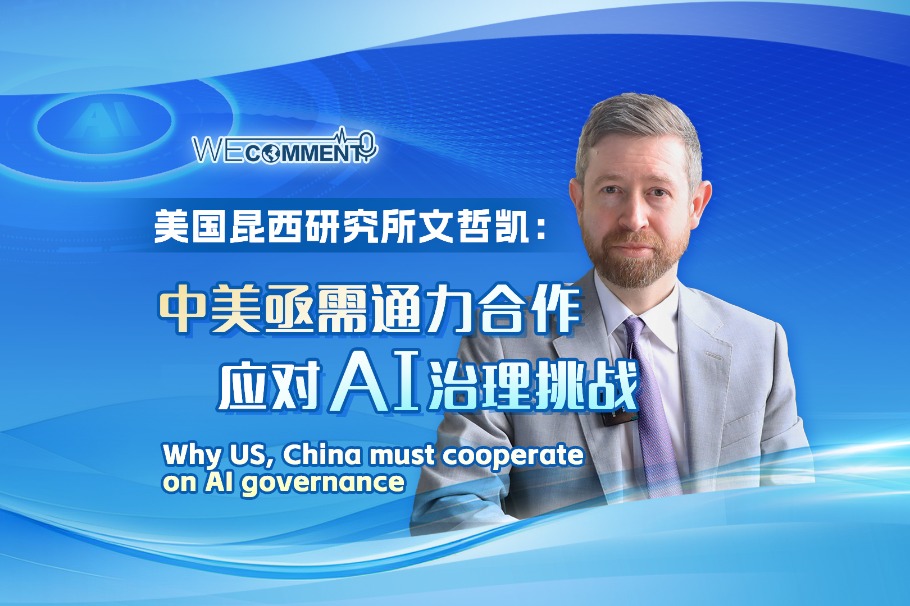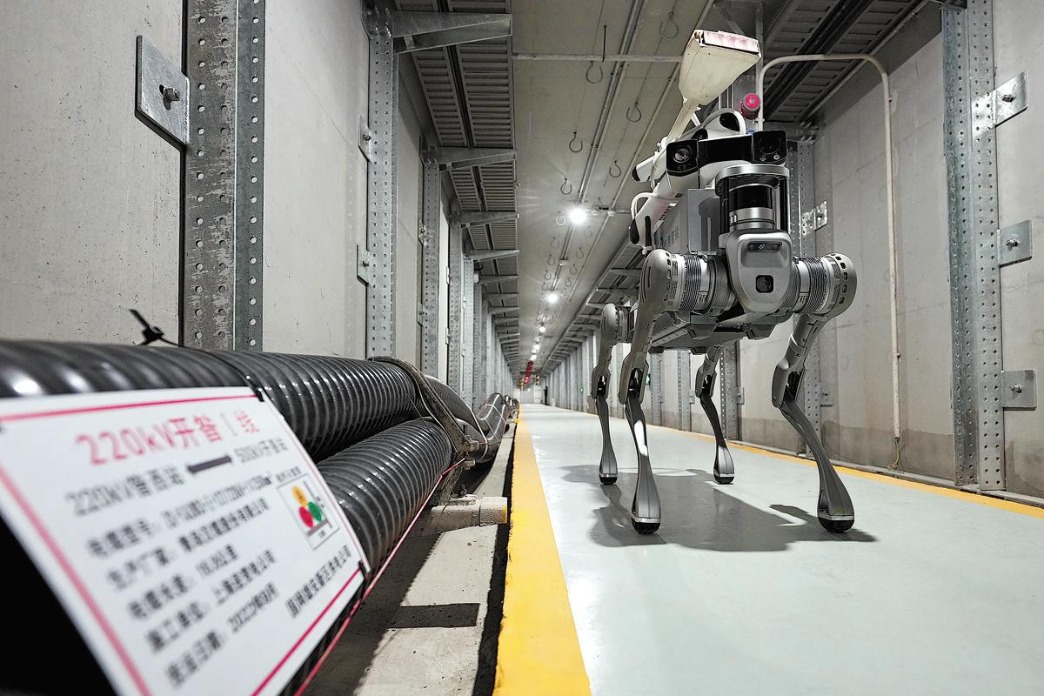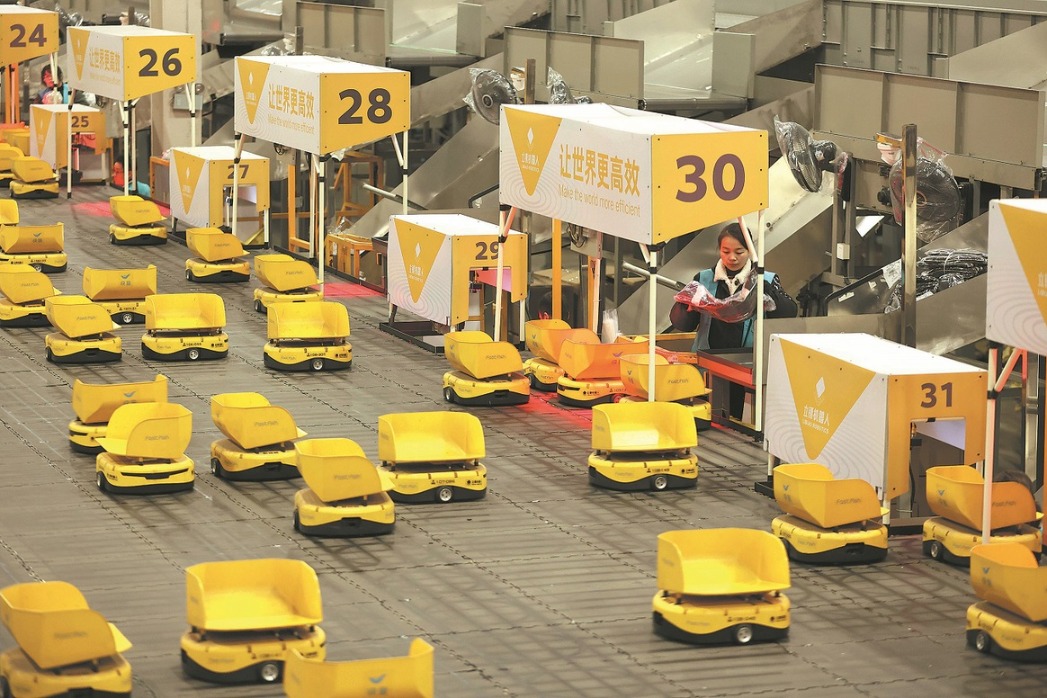Chinese self-driving firms playing key role on global stage
By FAN FEIFEI | China Daily | Updated: 2025-04-03 09:19

Chinese self-driving auto companies are intensifying efforts to make forays into overseas markets as part of a broader drive to bolster the large-scale commercial application of autonomous driving technology and enhance the competitiveness of domestic enterprises on the global intelligent automotive landscape.
Chinese tech heavyweight Baidu Inc recently announced that its autonomous ride-hailing platform Apollo Go has signed a strategic cooperation agreement with the Roads and Transport Authority of Dubai, the United Arab Emirates, to launch autonomous driving testing and services in the city.
As part of the agreement, Apollo Go will deploy 100 fully autonomous vehicles in Dubai by the end of 2025, using its sixth-generation robotaxi, with plans to expand the fleet to no fewer than 1,000 by 2028. The move marks Apollo Go's first international fleet deployment outside the Chinese mainland and Hong Kong and its first entry into the Middle East.
The company said all tests and services will be conducted in line with Dubai's local laws and adapted to regional needs. The collaboration aims to integrate autonomous ride-hailing into Dubai's broader transportation ecosystem, offering enhanced mobility services for residents and contributing to the city's intelligent infrastructure goals.
Apollo Go has also inked a strategic partnership with Autogo, a UAE-based autonomous mobility company, with the goal of deploying the largest fully driverless fleet in Abu Dhabi, capital of the UAE.
Initial trials of dozens of Apollo Go autonomous vehicles will be deployed in select areas of Abu Dhabi, with phased expansion planned ahead of full commercial operations by 2026. Looking ahead, Apollo Go and Autogo will work together to scale commercial operations of robotaxi services to serve more users and contribute to Abu Dhabi's smart city vision.
Chinese self-driving auto company Pony.ai is accelerating steps to expand its presence abroad. It has established an R&D center in Luxembourg, with a key focus on exploring and developing cutting-edge autonomous driving technology and offering customized solutions for the European market.
Pony.ai has set up a joint venture in South Korea in collaboration with a local tech company to promote the development and application of self-driving technology. The two sides plan to deploy an autonomous driving vehicle fleet in Seoul to provide ride-hailing services to the public.
The company also obtained an investment of $100 million from NEOM, a smart city being built in northwestern Saudi Arabia, and the NEOM Investment Fund in 2023. Pony.ai and NEOM will develop, manufacture and deliver autonomous driving services, advanced vehicles and smart vehicle infrastructure in NEOM and key markets in the Middle East and North Africa region.
Zhang Xiang, visiting professor at the engineering department of Huanghe Science and Technology University, said China is at the global forefront of research and development and the use of autonomous driving technology, emphasizing that the accelerated expansion of Chinese self-driving companies abroad will be conducive to propelling the large-scale commercialization of the cutting-edge technology globally.
He noted that authorities in some European countries and the Middle East hold a relatively open attitude toward autonomous driving technology and are promoting the testing and use of robotaxis.
More efforts should be made to comply with relevant laws and regulations in overseas markets, conduct more testing based on different road conditions, learn about the usage habits of consumers, as well as strengthen data management and compliance and personal privacy protection, Zhang added.
According to a report from research company MarketsandMarkets, the scale of the global robotaxi market is projected to reach $45.7 billion by 2030, at a compound annual growth rate of 91.8 percent from 2023 to 2030.
The growth of the robotaxi market is influenced by rising demand for ride-hailing services, high R&D investments and government focus on reducing emissions, infrastructure development and growth of the electrification of vehicles.
Zhu Keli, founding director of the China Institute of New Economy, said Chinese self-driving enterprises have accumulated abundant testing and operational experience in the domestic market and are eager to play a bigger role in the global autonomous driving sector by leveraging their technical strengths, adding there is a strong demand for autonomous vehicles in overseas markets.
fanfeifei@chinadaily.com.cn
























